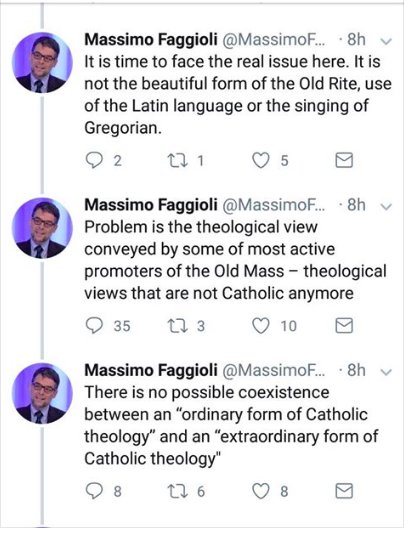There is a provacative little article in the Wahington Post by a Lutheran working in various Catholic institutions entitled: The Reformation is over. Protestants won. So why are we still here? Is it true?
A Lutheran academic most probably only moves in rather restricted circles, possibly one should ask where have Protestants won? The question however provokes other questions.
Such as where do we find Catholicism?
Is it in the documents of VII, or the theology of Cardinals Cupich or Marx, or in an ecumenical gathering, or is it the congregation at weekday Mass or the Rosary Procession through London last week or is it in the millions today that would term themselves 'former Catholics' or 'of Catholic descent', who have turned their back on the Church and its teaching?
Is it the 'possession' of the Pope and a small group vociferous twittering bishops, media savvy academic theologians and other clergy and journalists, or is something else?
I am no Church historian but it strikes me that Luther was the first 'theologian' in the modern sense, we had men like Aquinas and Bonaventure but they were quite different, they tried to make sense of an an already existing faith and explain it. In a sense their teaching persisted for centuries until it was actually taken up the Church, an example is Aquinas' use of 'Transubstantiation', it was only the Council of Trent that took it up as a philosophical explanation of the Real Presence, even now we can ask do we have to believe in a divide between 'substance' and 'accidents' to be a good Catholic or can we take it as analogy that explains why we prostrate before Blessed Sacrament and hold it as our greatest treasure and our contact point with God himself?
This is not what Luther or his contemporaries did, they invented something new, something personal. As soon as Protestantism emerges it is divided in itself. Luther has a different approach than Zwingli or Bucer or Calvin indeed they had savage disputes, they killed one another.
Luther himself said that before the Reformation there was one Pope sitting on seven hills, now every dung heap in Germany has its own Pope sitting on it. The creation of new 'churches' centred around particular theologians meant that princes were obliged to intervene for the sake of peace and order, so that religion became not something that somehow belonged to the people and bound them together but something imposed and regulated from above, by the 'prince'. I think until recently for example in England, atheist, nor-Christian, even Catholic Peers and Commons, actually had to vote on Church of England doctrine, and a non-Anglican, often non-believing, Prime Minister, in the name of the Queen, appointed its Bishops. Thus after the Reformation governments controlled what people believed, it became something imposed or something 'handed down', as opposed to something 'handed on'.
Authentic Catholicism is about a movement of the Spirit in the hearts of the faithful, expressed in worship and devotion. The more it is formalised, and taken away from what was taught at grandmother's knee, when it becomes the subject of documents, or individuals, even of Popes and Bishops the more Protestant it becomes, and I would suggest, therefore, the more empty our churches become.





